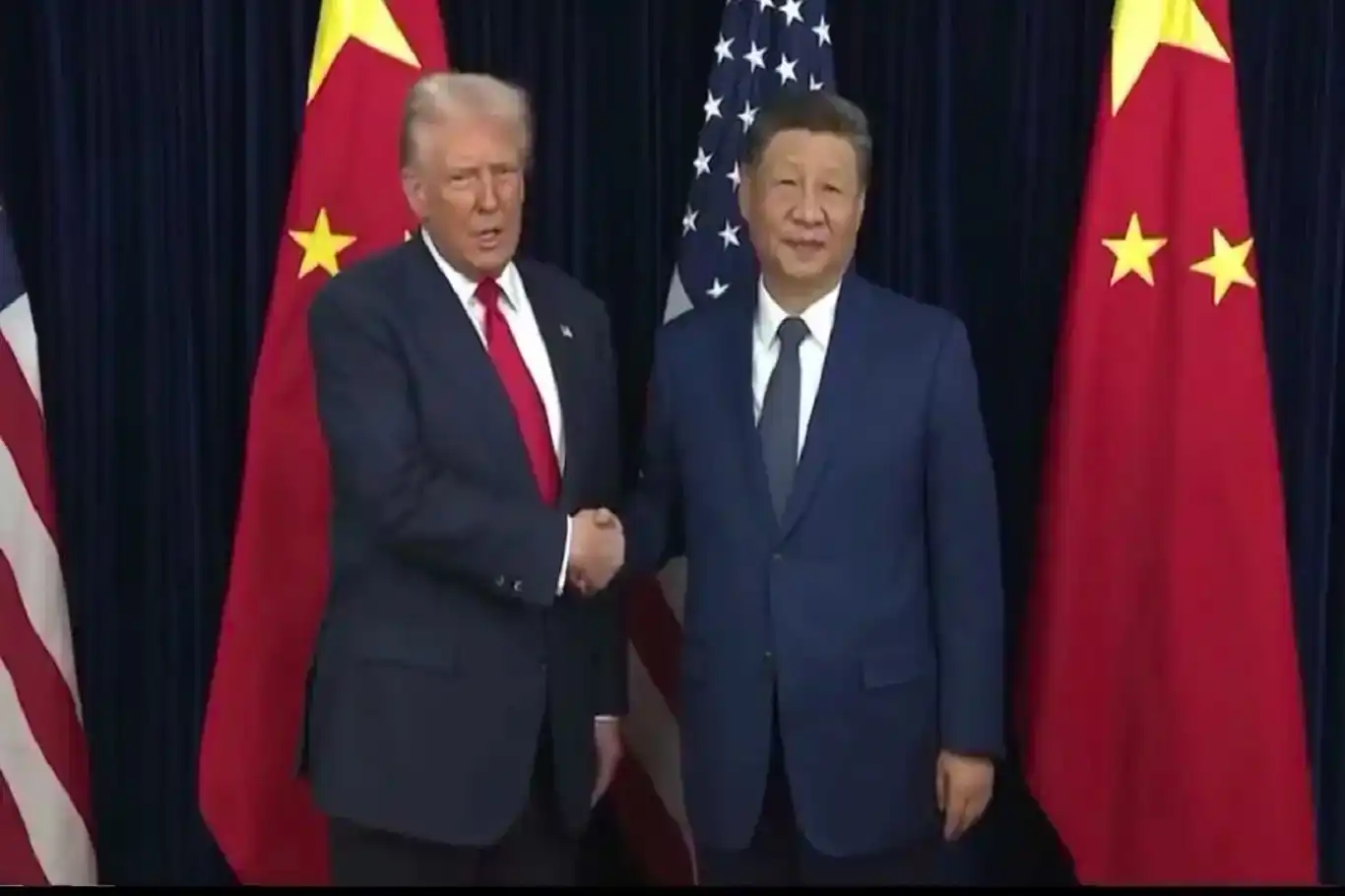Trump, Xi reach breakthrough agreements to ease tariffs in historic summit


U.S. President Donald Trump and Chinese President Xi Jinping concluded a high-level meeting on Thursday in Washington, aiming to stabilize bilateral relations after months of trade disputes and escalating tariffs.
U.S. President Donald Trump and Chinese President Xi Jinping held a face-to-face summit on Thursday in Washington, marking a significant step toward stabilizing relations between the world’s two largest economies after months of heightened trade tensions and escalating tariffs. The meeting, which lasted approximately 100 minutes, was the final engagement of Trump’s high-profile Asia tour and drew international attention for its potential to reshape global trade dynamics.
Speaking to reporters aboard Air Force One, Trump described the session as “wonderful” and stated that the two leaders “reached agreements on multiple fronts.” He indicated that a formal trade deal could be signed “very soon,” signaling a potential resolution to the trade disputes that have dominated U.S.–China relations in recent years. Trump praised Xi as a “great leader” and announced a reduction in U.S. tariffs on Chinese goods to 47 percent, including duties previously imposed in response to the flow of fentanyl-related chemicals into the United States.
White House officials confirmed that China reiterated its prior commitments to purchase significant quantities of American soybeans and to lift restrictions on rare-earth element exports, a move aimed at stabilizing global supply chains disrupted by previous trade policies. The agreement on rare-earth elements is particularly significant, as these materials are critical for high-tech industries, including electronics and defense, and were previously a source of geopolitical tension.
President Xi, in his remarks at the opening of the summit, emphasized the importance of dialogue and cooperation while acknowledging existing differences.
“It is a pleasure to see you again after many years. We do not agree on everything, and that is natural,” Xi said. “Nonetheless, our two nations have the capacity to contribute to each other’s development and success.”
Observers noted that the meeting carries important economic and political implications. Analysts argue that Trump’s decision to reduce tariffs and highlight positive engagement with China serves multiple objectives: it may help calm financial markets, reduce inflationary pressures, and strengthen his administration’s image ahead of upcoming U.S. elections. The negotiations also aim to prevent a renewed trade confrontation, which analysts warn could have global repercussions, affecting supply chains, commodity prices, and international investment.
Experts caution, however, that despite the positive tone of the summit, several core issues remain unresolved. These include technology transfer policies, intellectual property rights enforcement, and comprehensive measures to control the export of chemicals used in fentanyl production. Both nations are expected to continue negotiations over these matters in the coming months.
The White House announced that President Trump plans to make an official visit to China in April 2026, while President Xi is expected to undertake a reciprocal visit to Washington later in the year. International economic observers view these planned visits as opportunities to solidify the agreements reached in Thursday’s summit and to lay the groundwork for a more stable, cooperative economic relationship between the U.S. and China.
The summit has been widely reported by global media outlets including Reuters, the Wall Street Journal, Al Jazeera, and the BBC, reflecting the international significance of any shifts in U.S.–China trade policies. Many analysts suggest that while the immediate outcome is positive, the long-term impact will depend on the implementation of the agreements and the management of remaining disputes. (ILKHA)
LEGAL WARNING: All rights of the published news, photos and videos are reserved by İlke Haber Ajansı Basın Yayın San. Trade A.Ş. Under no circumstances can all or part of the news, photos and videos be used without a written contract or subscription.
Senior Hamas official Muhammad Nazzal has accused Israeli Prime Minister Benjamin Netanyahu of orchestrating a deliberate campaign to undermine the Sharm el-Sheikh ceasefire agreement, asserting that the Tel Aviv regime is actively seeking false pretexts to reignite its brutal war on the Gaza Strip.
Hezbollah has strongly condemned the latest Israeli assault on the southern Lebanese border town of Blida, calling it a continuation of the Zionist regime’s “criminal violations” of Lebanon’s sovereignty and a blatant disregard for international law and agreements.
Hundreds of people gathered in Germany’s capital, Berlin, to denounce the Israeli occupation regime’s repeated violations of the ceasefire and its renewed wave of deadly attacks against the besieged Gaza Strip.
An Israeli military raid in the southern Lebanese town of Blida early Thursday resulted in the death of a municipal employee, marking a serious escalation in cross-border hostilities.